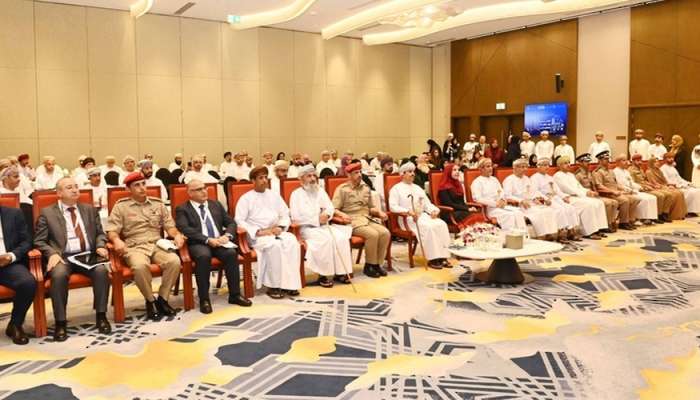
Muscat: The Regional Media and Information Literacy Forum commenced on Monday under the theme "Empowering Minds in the Age of Artificial Intelligence."
The three-day forum will examine successful media and information literacy practices, address growing digital challenges, assess the role of policy in fostering media awareness, and explore the intersection of generative AI with media and information.
The opening ceremony was held under the auspices of Dr. Abdullah bin Nasser Al Harrasi, Minister of Information, in the presence of Dr. Madiha Ahmed Al Shaibani, Minister of Education and Chairperson of Oman National Commission for Education, Culture and Science. The event brings together experts and representatives from international organizations, government entities, and academic and media institutions from within the Sultanate of Oman and abroad.
The forum targets teachers, supervisors, and curriculum designers in school education institutions; academics and students in media disciplines at higher education institutions; journalists and editors across various media outlets; and personnel working in communication and media departments within various state administrative apparatus, private sector, and civil society organizations.
The forum aims to establish foundational understanding of media and information literacy, highlighting UNESCO's role in promoting digital rights awareness, ethical information use, and the critical skill of discerning reliable from misleading content in an era of growing AI influence.
In his opening address, Dr. Mahmoud bin Abdullah Al Abri, Secretary-General of the Oman National Commission for Education, Culture and Science, emphasized that the new global reality—where generative AI is reshaping knowledge production and circulation—demands innovation, enhanced learning and services, and greater societal awareness, especially among youth, regarding the ethical use of modern technologies to uphold societal peace and sustainable development.
"We are committed to translating into action the directives of His Majesty Sultan Haitham bin Tarik," he continued. "These directives call for preserving Omani values and national identity amidst digital openness, and for deploying artificial intelligence as a developmental tool that fuels national progress, helps build an advanced knowledge economy, and fosters a secure and balanced digital society, all aligned with Oman Vision 2040."
In a recorded address, Salah Khaled, Director of the UNESCO Regional Office for the Gulf States and Yemen in Doha, emphasized that the world is undergoing a rapid and unprecedented revolution in the production, consumption, and sharing of information. He noted that the relentless flow of digital content has rendered traditional literacy skills inadequate for the modern era. Consequently, UNESCO asserts that media and information literacy is a foundational pillar for cultivating informed citizens who can engage with all forms of media—written, visual, or digital—critically and responsibly.
He also detailed UNESCO's ongoing efforts to empower member states in the field of media and information literacy. This includes integrating media and information literacy (MIL) into educational and media policies, supporting the development of curricula and training programs, building institutional capacity, and fostering international cooperation through initiatives like the Global Alliance for Partnerships on Media and Information Literacy (GAPMIL).
The opening ceremony featured a main session on "The Importance of Media and Information Literacy in the Digital Age from the Perspective of International Organizations." The first day's agenda also included two working sessions titled "Regional and International Cooperation in Promoting Media and Information Literacy," which featured three working papers on media efforts regarding Oman's experience in establishing information literacy amid AI technologies, Tunisia's experience in this field, and media studies—the Jordanian experience.
The second session addressed public policies and legislation that underpin media and information literacy. Discussions covered the Ministry of Information's role in strengthening institutional communication to combat disinformation, the Royal Oman Police's security media model and its contribution to MIL, criminal protections for society in the digital age, and the role of governance in fortifying the cybersecurity ecosystem.
The forum is organized under the supervision of the Ministry of Education, represented by the Oman National Commission for Education, Culture and Science, and the UNESCO Regional Office for the Gulf States and Yemen in Doha, in cooperation with the Ministry of Information and in partnership with the Islamic World Educational, Scientific and Cultural Organization (ICESCO) and the Arab League Educational, Cultural and Scientific Organisation (ALECSO).